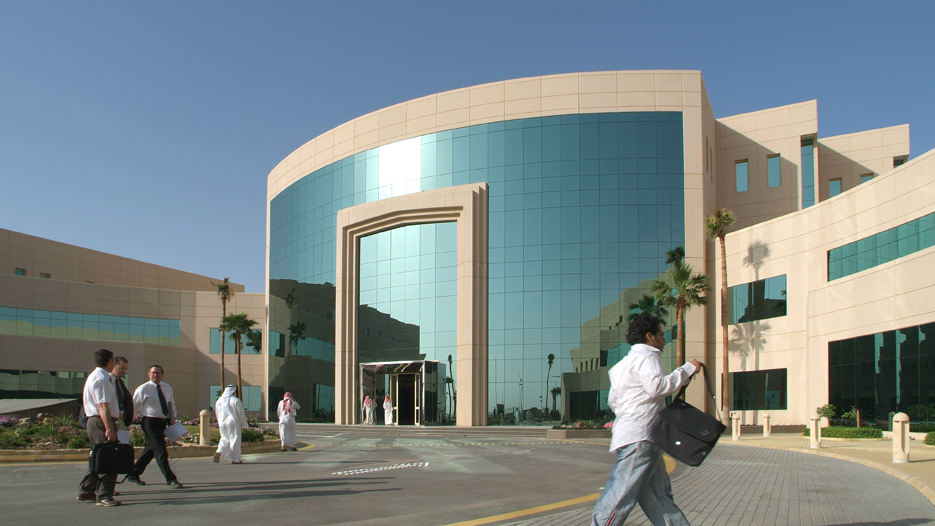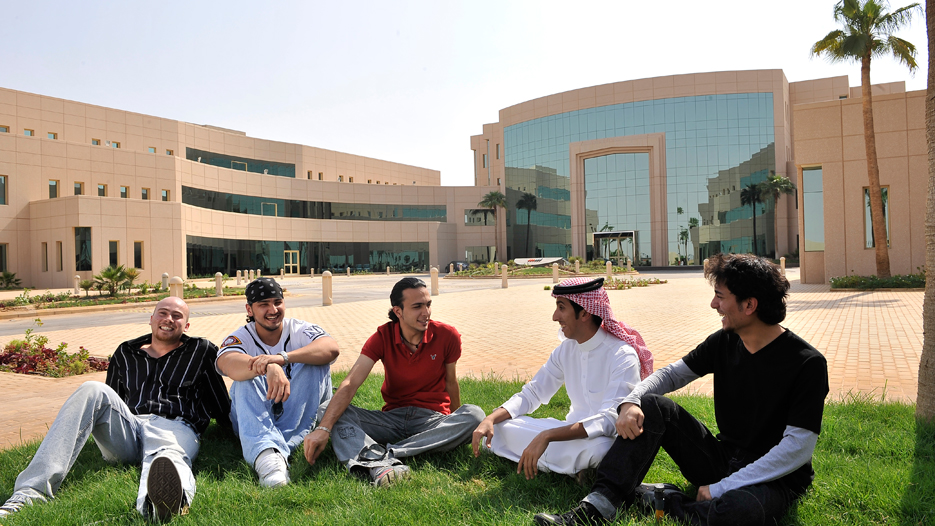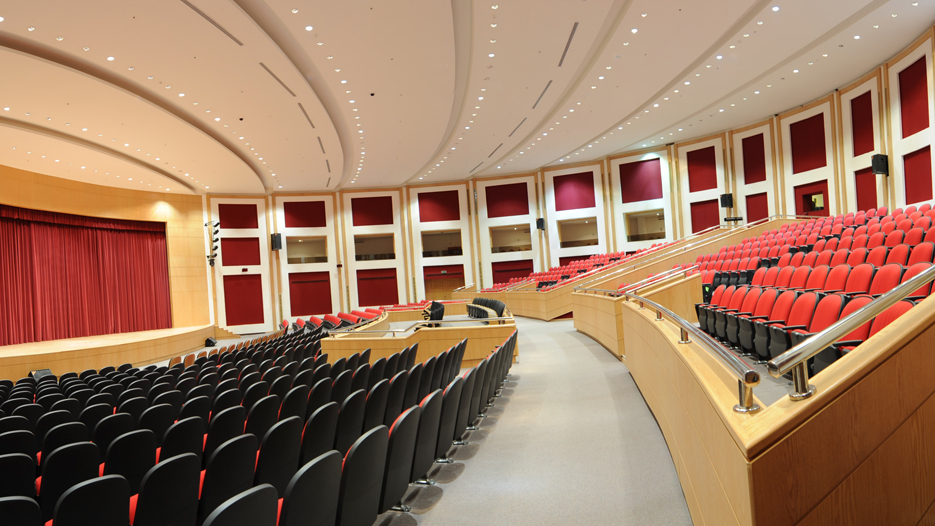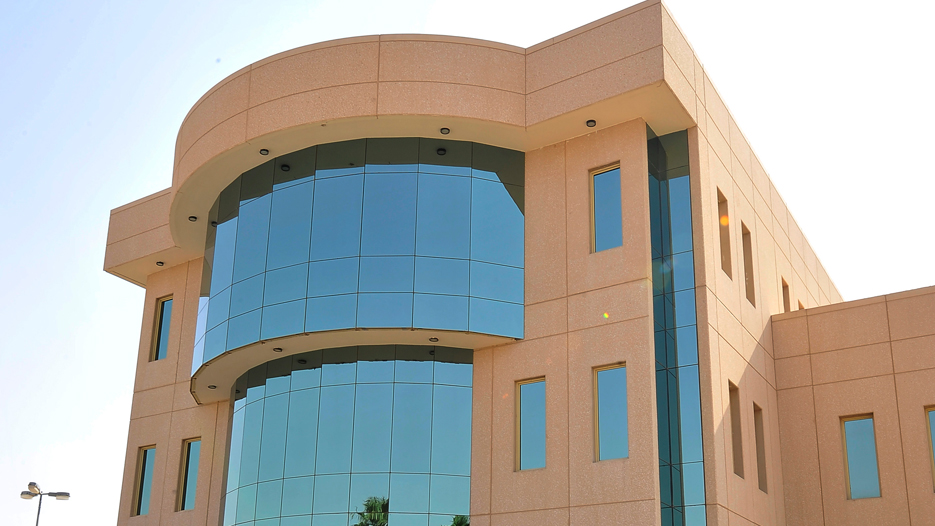Al Yamamah University: leading private education in Saudi Arabia
Al Yamamah University (YU) is a relatively new, fully accredited private university of about 2000 students in the Kingdom of Saudi Arabia (KSA).

Al Yamamah University (YU) is a relatively new, fully accredited private university of about 2000 students in the Kingdom of Saudi Arabia (KSA). In the decade since it opened its doors to students, YU has distinguished itself by equipping its students to operate and compete effectively in the fields of business, technology, engineering, and architecture according to the highest international standards. For this purpose, all of YU’s courses are taught in English, and a very impressive faculty has been assembled to assure that students get the finest instruction and training possible. All students train with, or do an internship with, leading private companies, such as telecom services, banks or insurance. YU has key international partnerships with international universities, such as the Grenoble Graduate School of Business of New Zealand, and INSEEC Business School (Institut des hautes études économiques et commerciales) of France.
According to Hussein M. AlFreihi, president of YU, the school has been very successful in serving its students,:
Many of the students also attend international schools during the summer: for example, Irvine University in California, or they go to Munich, Germany, or to British Columbia. Our graduate students have enrolled successfully in a number of universities, like Stanford, which is among the highest-ranked universities in the United States. The university ranks very high on this parameter. The graduates are quite capable of finding high-paying jobs, which is evidence of the quality of our graduates…. Our graduates rank among the most highly-desired in the Kingdom of Saudi Arabia.
History
Private colleges and universities are relatively new in Saudi Arabia. Prior to 1998, only one private college was attempted in the 1970s, which failed for lack of funding, and was taken over by the government. In the late 1990s, however, the idea of privately organized and funded higher education was reconsidered, and provisions made in law for the founding of private colleges and universities.
Among the first to take advantage of the new law was the Al Khudair family, who advanced a plan for an ultra-modern, state-of-the-art college for both men and women. The Al Khudair family was already distinguished in the field of private education for pioneering private primary and secondary schools in Riyadh in the late 1950s.
In May 2001, the Ministry of Higher Education of Saudi Arabia authorized the Al Khudair family to found Al Yamamah College (YC) under the Private Colleges Act. Pursuant to this authorization, the Al Khudair family selected a 160,000 square meter (39.5 acres) parcel of land north of Riyadh, along the Al-Qassim Highway. Funding of 300 million Saudi Riyals (USD $80 million) was committed to construct an ultra-modern, state-of-the-art the campus, and assemble appropriate faculty and staff. Al Yamamah College opened its doors to male students in September 2004 and to female students in September 2006.
In 2008, King Abdullah bin Abdulaziz Al Saud issued a royal decree elevating Al Yamamah College to university status. This was the culmination of eight years of planning and hard work to establish a distinctive, modern Saudi educational institution providing both undergraduate and postgraduate education for both men and women.
On July 2, 2015, Al Yamamah University joined an elite group of only fourteen universities—out of forty universities in Saudi Arabia—to be accredited by the National Commission for Academic Accreditation and Assessment (NCAAA). The NCAAA is an independent body responsible to the Council of Higher Education for the accreditation of postsecondary education in the Kingdom of Saudi Arabia. But the drive for recognition of YU’s quality has not ended. YU’s president AlFreihi insists that YU’s
strategy is to obtain more international accreditations as well as local and regional program accreditations. For 2015-2016, the university will apply to ABET, which is an American crediting body for programs related to computing. We are also applying to NAAB for our architecture and interior design programs. It is paramount to get recognition for the standard of teaching, and we are confident that we will be approved.

State-of-the-art Campus
While quality of instruction and student success after graduation constitute the heart and soul of YU, it’s most eye-catching feature is its ultra-modern state-of-the-art campus. This comprises a main campus for men, and a fully equal second campus for women. Every feature of the campus is designed to be stat-of-the-art, serving the functions of learning and teaching, students and faculty, knowledge and research.
Main Campus
Built on 13,720 square meters, the state-of-the-art main campus houses the following:
Learning facilities
YU learning facilities are located in the main building and consist of 70 well-equipped classrooms, 6 computer labs, 2 small auditoriums with 60 seats each to host presentations, seminars and staff as well as student training sessions.
Cafeteria
This is located on the first floor of the main building so students, faculty or staff can grab a bite on the run or enjoy a meal in the nearby seating area. The Cafeteria serves a healthy range of foods, snacks, sandwiches and beverages all competitively priced.
Parking areas
The YU main campus has two main parking lots, one for faculty members and the administration staff with capacity for more than 150 cars, and another for students, accommodating more than 500 cars.
Gymnasium and Sport Facilities
YU houses a Sports Club on the Main Campus. The club includes a court for volleyball, basketball and handball, along with a bowling alley, as well as a fully equipped gym area to welcome those who wish to work-out while on campus or just want to spend some leisure time there. Apart from that, the outdoor sporting facilities include a soccer field, and tennis and basketball courts, prepared for hosting public sports events.
The library
Occupying an area of 1,500 square meters, the library has a stack capacity of 35,000 volumes and seating space for about 200 library users. The present collection is primarily in Arabic and English languages with emphasis on Business Administration and Information Systems. The holdings also include periodicals, database subscription, DVDs, CDs, etc. Computers with internet access facilities and wireless networking are also available. Planning has begun to provide group study-rooms which will be outfitted with audiovisual equipment. The purpose of the group study rooms is to provide a location for group discussions and collaborative learning. The rooms will be designed for the convenience of students who wish to converse, to view videotapes or audiotapes for their studies.
Main Auditorium Building
Located at heart of the men’s campus is a beautiful main auditorium designed to serve up to 1000 guests, and 30 VIPs. It is equipped with advanced audio/visual systems that can be used for public events as well as theatrical performances and conferences.
Women’s Campus
The ultra modern women’s campus, inaugurated in Dec. 2008, occupies 11,000 square meters and houses the following:
Lecture halls and classrooms
There are 70 well-equipped with latest learning facilities.
Administration offices
There are 90 comfortable work settings for administration staff.
Computer labs
Six computer labs provide students with easy internet access and are convenient for taking IT courses.
Food Court

In order to ensure everyone in YU can attain a healthy lifestyle; we took extra care in our choice of restaurants and cafés to serve our students on campus. Currently, students, faculty and staff on the Women’s campus have the option to head to one of the cafeterias and restaurants and choose from a verity of healthy foods, snack and beverages and enjoy a tasty and nutritious meal in a friendly and relaxed ambience.
VIP room
This room has a total area of one hundred square meters has been elegantly furnished and made ready for receiving YU guests.
Showroom
Totaling area of eight hundred square meters, the Showroom is sufficient for hosting exhibitions and public events.
Training rooms
Three rooms with an area of one hundred forty five square meters have been designed and equipped for training, seminars and presentations.
Sports facilities
Not overlooking the importance of sports and well-being for girls, the university has incorporated an exercise/recreation area in their building with a gym, an exercise studio and recreation facilities including a bowling alley. These facilities will help contribute to the mission and vision of Al Yamamah University, which is to provide the best possible resources for students to develop their full potential.
Library
The Library provides students, staff and faculty members with a vast range of books, periodicals, CDs, DVDs and computers, all within a quiet and cozy environment to study and research.
Auditoriums
A beautiful auditorium has been designed to serve 320 attendees. The auditorium is equipped with advanced audio/visual systems that can be used for public events as well as theatrical performances and conferences.
Academic Programs
YU comprises three colleges: College of Business Administration (COBA); College of Computer and Information Systems (CCIS); College of Engineering and Architecture (CEA), and several independent programs.
College of Business Administration (COBA)
Undergraduate. The College of Business Administration offers the following undergraduate majors or concentrations: (1) Accounting; (2) Finance; (3) Management Information Systems; (4) Marketing; (5) Insurance; (6) Quality Management; (7) Real Estate Management; and (8) Entrepreneurship. Under a separate Department of Law, COBA offers: (1) Public Law; and (2) Private Law.
Graduate. The College of Business Administration offers the following Masters programs: (1) Master of Business Administration (MBA); (2) Master of Human Resources Management (MHRM); (3) Executive MBA (EMBA).
College of Computer and Information Systems
CCIS offers a Bachelor’s Degree in Computer and Information Systems (BCIS) with the following majors or concentrations: (1) Programming & Databases; (2) Graphics and Multimedia; (3) E-commerce; (4) Networking & Security Engineering; (5) and Software Engineering.
College of Engineering & Architecture
The College of Engineering and Architecture offers a Bachelor of Science degree the following majors or concentrations: (1) Interior Architecture (IAR); (2) Interior Architecture Specialization (IAR); (3) Furniture Design Specialization (FUR); and (4) Lighting Design Specialization (LGT).
A separate Department of Architecture offers: (1) Bachelor of Architecture; (2) Bachelor of Architecture, Building Science, and Technology; (3) Bachelor of Architecture, Environmental Design.

Special Programs
Microsoft Innovation Center. YU hosts Saudi Arabia’s only Microsoft Innovation Center (MIC). These are state-of-the-art technical facilities designed and operated with the goal of facilitating collaboration between government, academic, and industry participants on innovating research, technology, and software solutions. There are currently more than 90 such centers world-wide, working to promote advances in technology while simulating local software economies through skills and professional training, industry partnerships, and innovation. Students in the College of Computer and Information Systems benefit from access to specialized technical training as well as MIC sponsored industry events thought the year.
SABB Investment Research Center. In 2010, The Saudi British Bank (SABB) established the “SABB Investment Research Center at YU.” This center focuses on helping students and faculty members from YU, especially students and professors in the college of business administration, to conduct research and carry out various projects through direct contact with local and international money markets. Activities of SABB include providing grants for postgraduate studies to Saudi graduates, as well as training programs to prepare them for work in the field of banking, in addition to other training programs organized in collaboration with other universities and educational institutions in the Kingdom.
Center for Business and Applied Research. The Center for Business and Applied Research was established in 2012 in order to encourage faculty research and scholarly production while strengthening the links between teaching and research at the undergraduate level. CBAR seeks to forge collaborative partnerships with participating universities, government agencies and the business community to create opportunities for sponsored research programs aimed at fostering business development, while making contribution to the economic, social and cultural development of the country and the region
Ghazi Algosaibi Cultural Studies Chair. The “Ghazi Algosaibi Cultural Studies Chair” was established in 2013 to meet the needs of the scientific and practical duty towards society. The objectives of the chair are to: (1) Add a serious cognitive structure to the existing system and development of YU; (2) Support research awareness and creative, “out of the box” thinking; (3) Contribute to the enrichment of the cultural field of Saudi Arabia and the Gulf region; and (4) Provide scientific consultations to the concerned governmental and private agencies. The chair is named for a national figure well known for his literary and intellectual achievements.
English Language Instruction. Since its inception, YU has recognized the key role that the English language plays in today’s world of business, knowledge and technology, and has taken the strategic decision to offer its programs in English. With that in mind, YU started a long-term partnership with the US-based INTERLINK Language Centers to provide the English language preparation program for Al Yamamah students. Following the project-based, student centered approach and with a highly-qualified teaching staff, Saudi INTERLINK Language Centers (SILC) have been providing the Orientation English language program since 2004 to equip students with the English language and other academic skills they need to succeed in the academic context at YU and beyond.